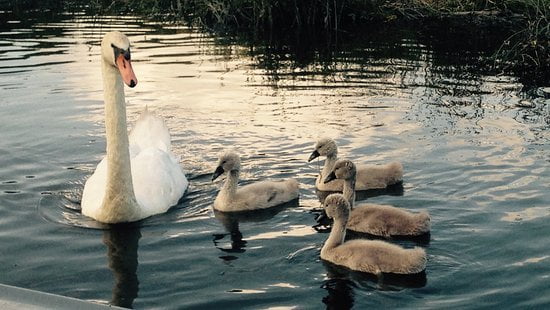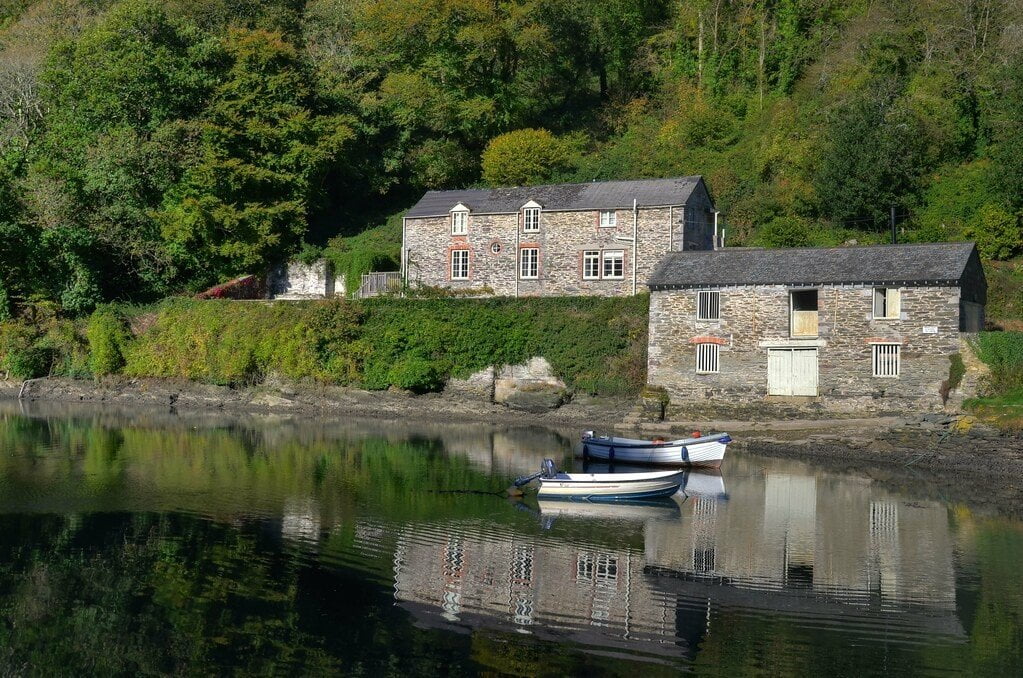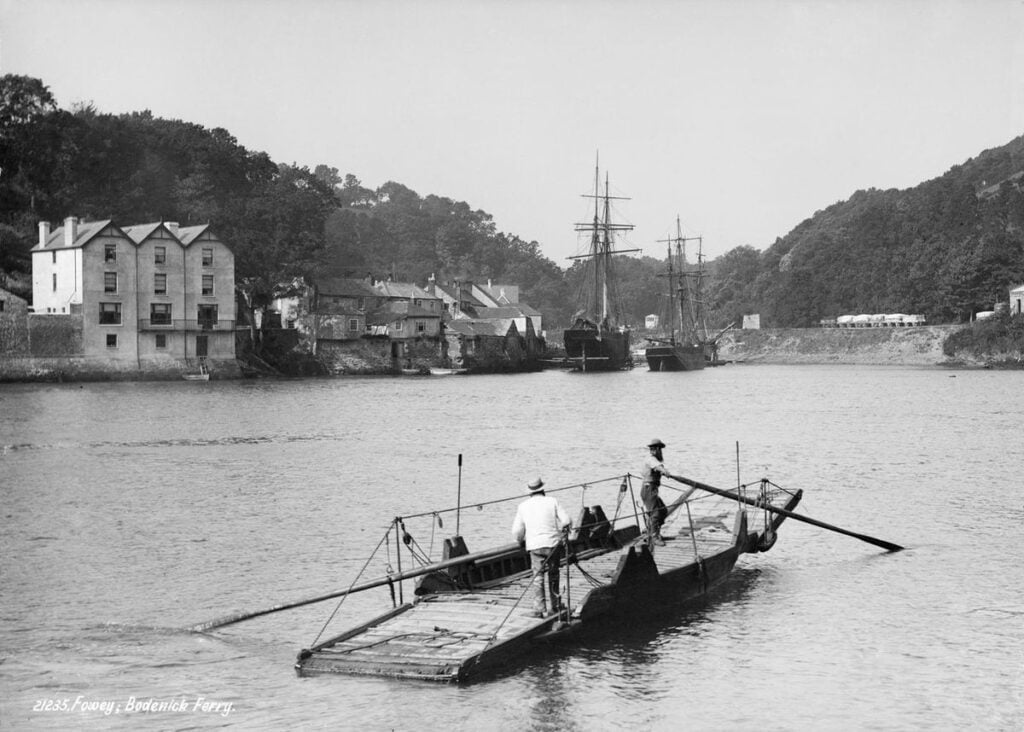There were many ways of going to Pont in the old days and each one brought its own adventures and delights. Perhaps the best way of all was by boat; pack the picnic baskets, fill the flasks, pick up rugs, model boats, buckets and spades and then, down to the quay. The boat, a large rowing boat, would be tied to a ring in the quay by its painter. This would have to be untied, the boat pulled into the step, and all the baggage loaded aboard. Father and Mother each took an oar, my brother and I sat in the stern, and off we went.
Up the harbour, past boats large and small, some with people on the decks who would wave to us, until we reached the mouth of the river, Pont Pill. Herons standing in the mud, swans nesting on a pile of rubbish, hardly worth calling a nest, people walking the footpaths, there was always so much to see.

The adventure came when we reached the land again. My mother climbed out, lifted out my brother, some of the baskets, and then me, while my father kept the boat steady in the deep water by the wall. My mother, with that sixth sense all mothers seem to have, realised something was wrong, and looked around to see my brother sinking fast below her in the river. She leapt in after him (my father, although a sailor, could not swim) and splashing and gurgling they landed on the little beach.

The old lady who kept the tea garden on the lime kiln came down to offer dry clothing; the only trouble was she was very tall, and my mother was very short. Clad in a long black dress, with a high neck and long sleeves, Mother was a strange sight on a hot summer’s day, but her own clothes soon dried out over the rail above the Cornish range.
On another occasion my grandmother made an epic trip up the river to Pont. She had not been in a boat for years, since a whale entered Fowey harbour when she was crossing on the ferry. However, her only brother had come home from Canada on holiday and wanted to go on the river. So, twelve members of the family, myself, brother and Mother included, rowed in state to Pont in two boats. Grandmother wore a coat with fur collar and a large felt hat and gloves, while everyone else was in summer clothes.

Often when my father came home on leave my uncle, a coal merchant, would tell him that one of his horses needed shoeing. This brings us to the second way of going to Pont – riding in the coal cart! It was brushed and scrubbed out for the occasion; Father and Mother sat up in front with the reins, and my brother and I were in the back, on old rugs.
Riding through the lanes at the slow pace of an elderly cart horse was so peaceful; I do not remember meeting a car at any time, there were only one or two in the village then. The branches of the trees met overhead in a leafy tunnel, the light dappled green as the sun shone through; the journey to the blacksmith’s shop was all too short. Once there the horse would be unhitched and led into the forge, and we usually watched the smith at work for some time. We were fascinated by the blazing fire, the hissing sound of the hot shoes on the hooves of the horse and the strong smell, like no other I had ever smelt.
We would then take the picnic a little further up the valley and after eating, would pick blackberries or nuts from the hedges if it was autumn; or primroses, violets and wild strawberries if it was spring.
Eventually we would return to the blacksmith’s shop, harness the horse and set off for home, preferably the long way round by the coast road. This was easier for the horse as there was no steep hill to climb, and we could look out to sea and see the beach at Lantic Bay. It was there, during the war, we saw a boat pulled on the beach. My father knew it should not have been there and reported it to the coastguard on our return. He was visited by some security men, and years after the war we learned a deserter from the army had been camping out in the cove.
Walking to Pont was much more strenuous than boating or riding, but had many compensations, the main one being tea on the lime kiln. There were tea gardens on the lime kilns on both sides of the river, but we usually stayed on the left-hand side, where the lady had dried my mother’s clothes. Tea came in a big brown pot, with rich farm milk, homemade splits and jam and wonderful thick golden cream. There were often wasps about, but no one ever seemed to be stung; there was plenty of space to lose them in. Another compensation was drinking the water from the shute near the blacksmith’s shop. Clear and cold, no horrible tasting additives, just really fresh water, delicious on a hot day.
Adventures happened even more when walking; a straight walk out of Polruan up the hill and down could be a little bit boring so we usually walked through “The Hills”, a lovely footpath wandering among the trees above the river. There you could gather watercress as well as the other fruits and flowers.
Before going on the Pont we would sometimes make a detour to Cairn Beach, and often we never got any further! Paddling, swimming, sandcastles, collecting shells, swinging from a rope or tyre hanging in the trees, and occasionally lighting a fire to boil a kettle or cook shrimps in the pan. The cooking only happened when we went by boat, because the and kettle would have been too heavy, the shrimping net, – cumbersome.